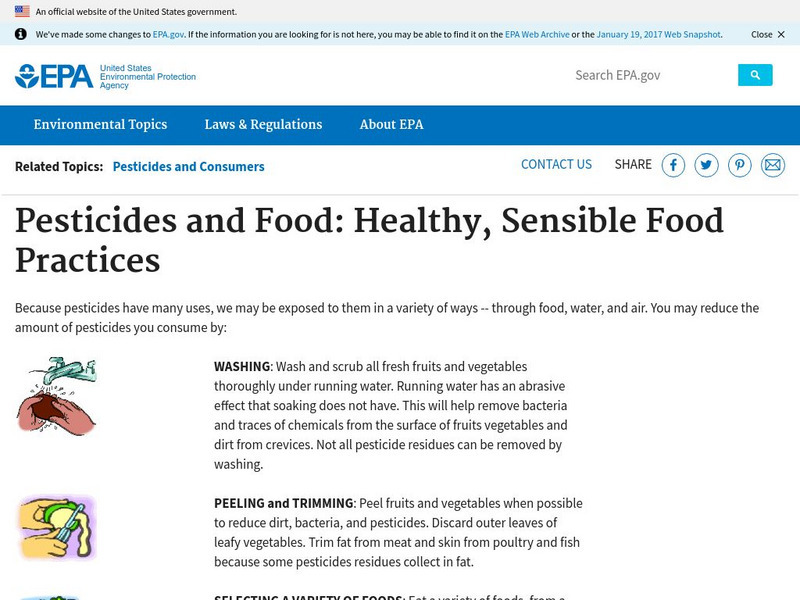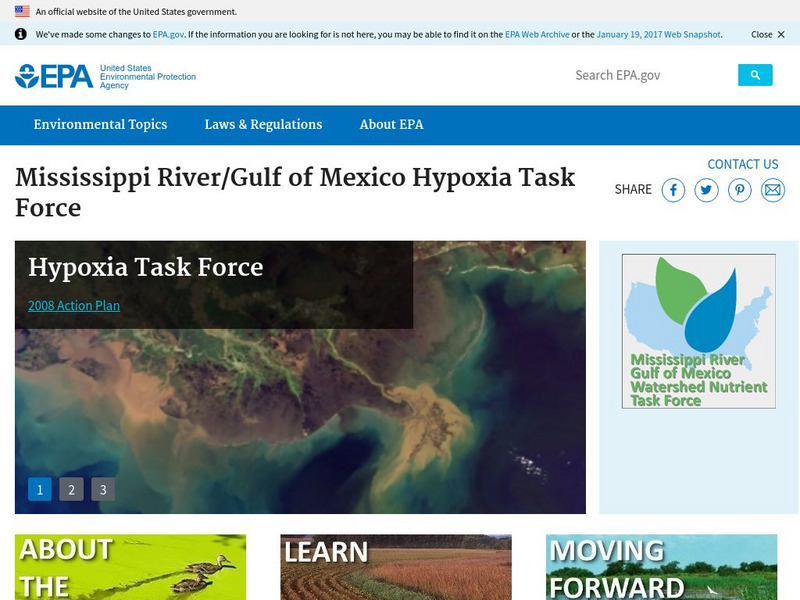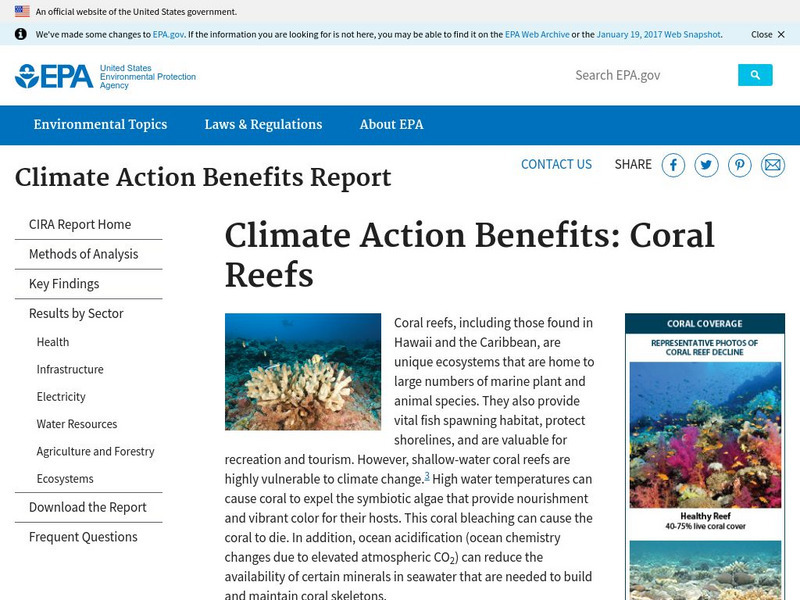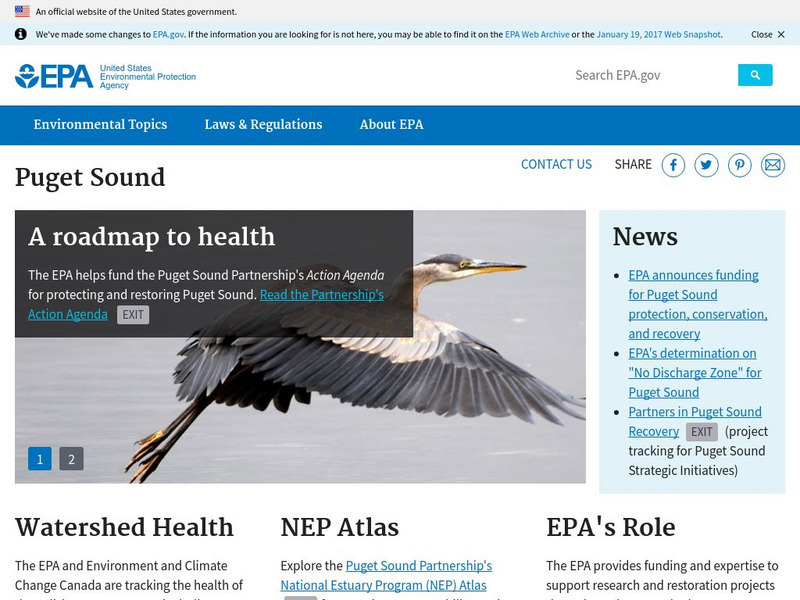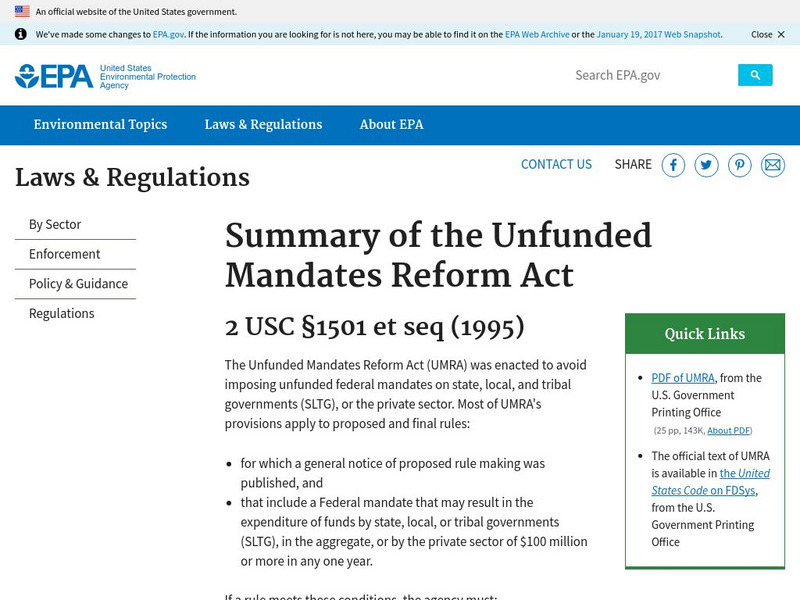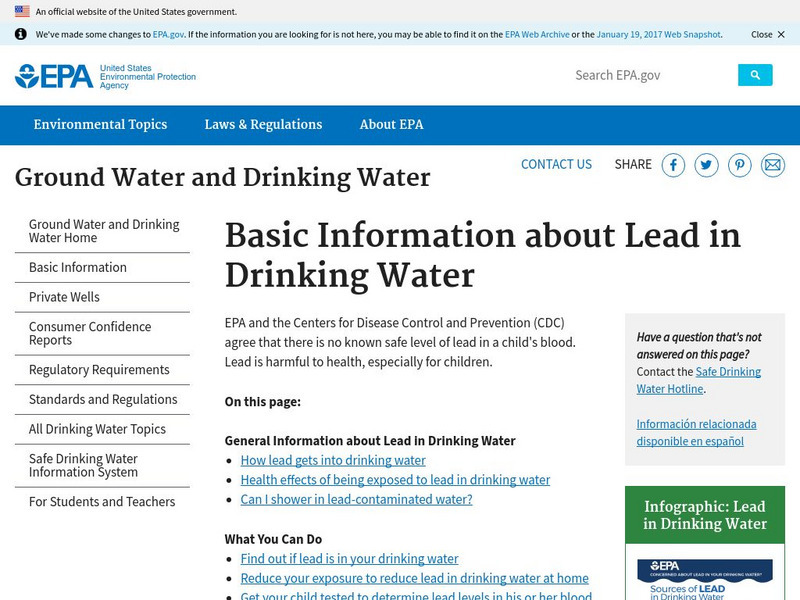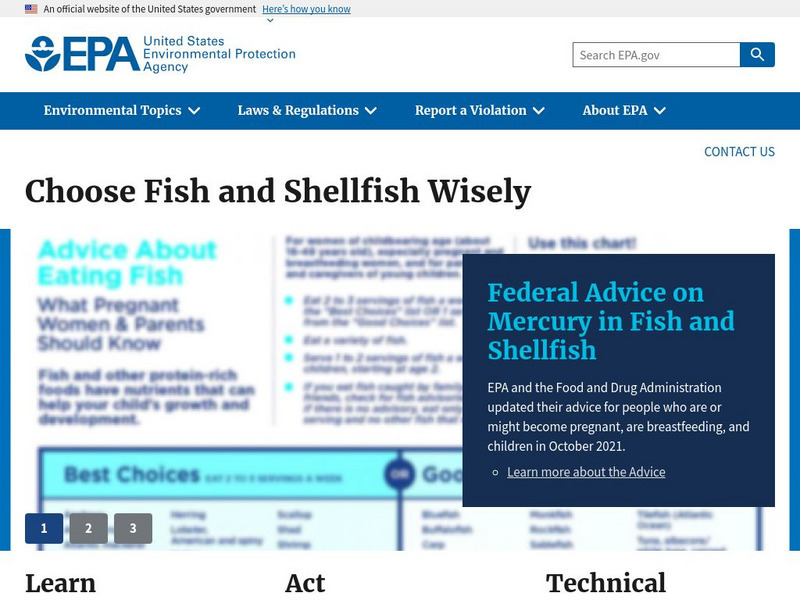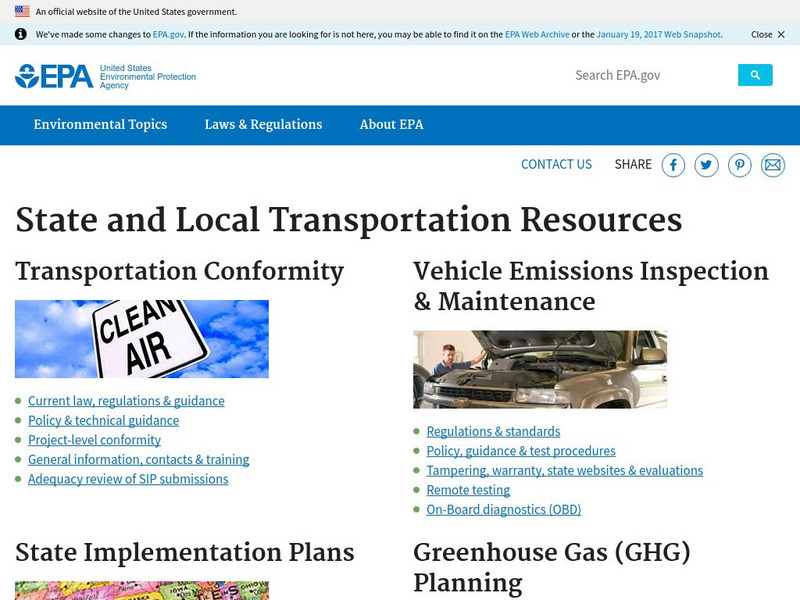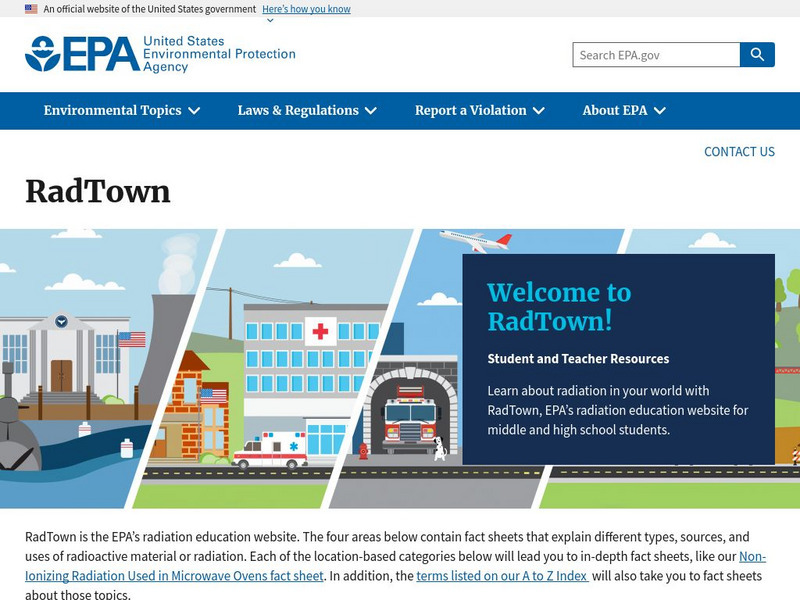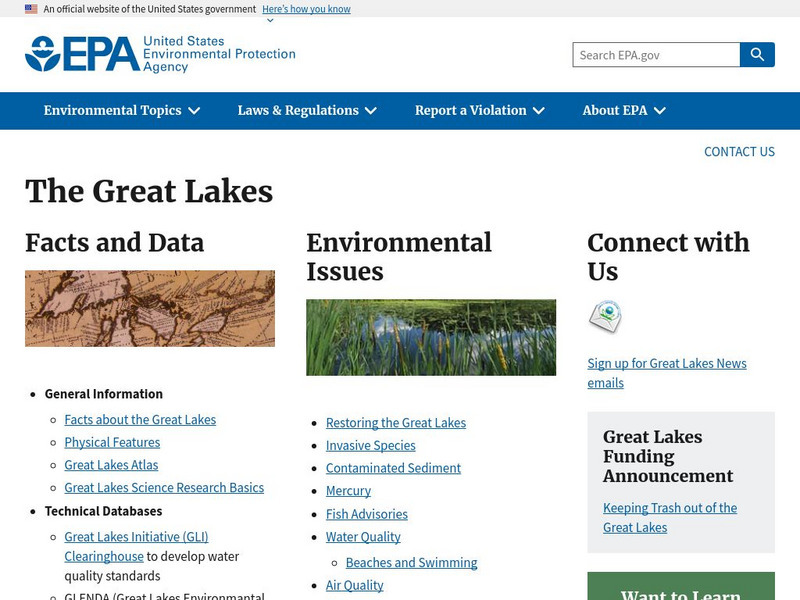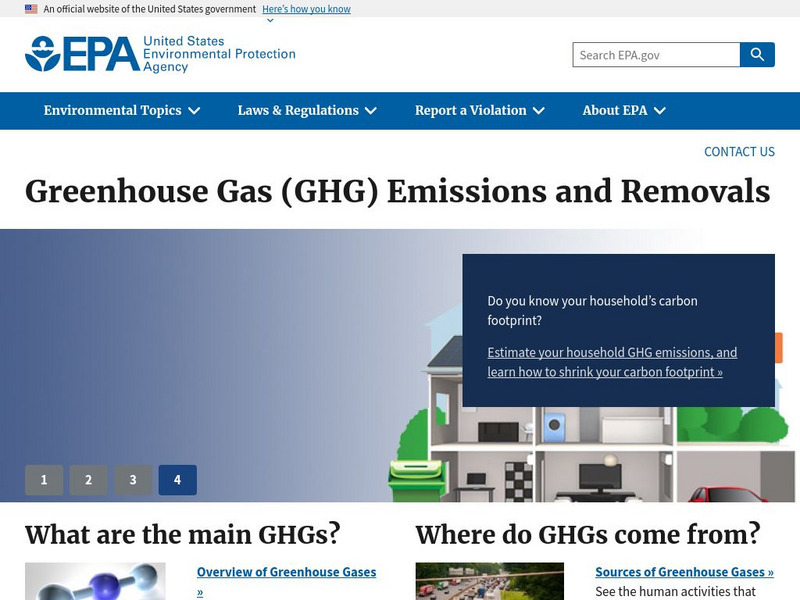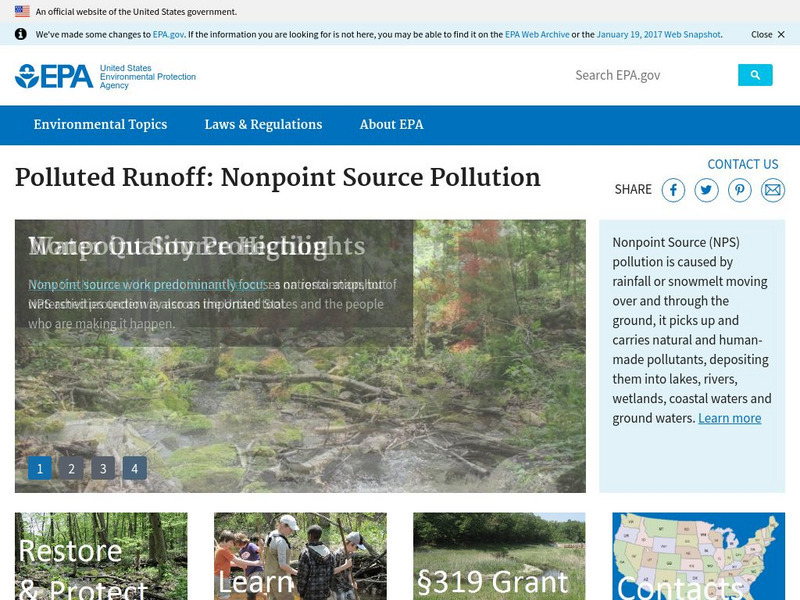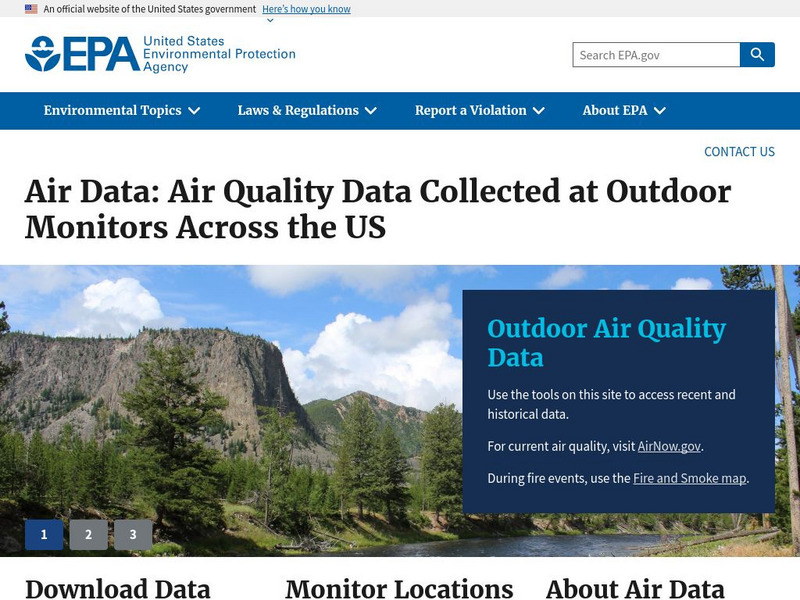US Environmental Protection Agency
Epa: Why Are Wetlands Important?
Find out why wetlands provide natural water quality, flood protection, erosion control, recreation and aesthetic appreciation, and natural products.
US Environmental Protection Agency
Epa: Envirofacts Data Warehouse
Retrieve information from multiple sources of Envirofacts' System Data for your area of interest. using zip code, city, or county information.
US Environmental Protection Agency
Epa: Learning and Teaching About the Environment
Students and teachers can explore environmental issues with classroom resources, homework help, and other publications.
US Environmental Protection Agency
Epa: Learning and Teaching About the Environment
The United States Environmental Protection Agency provides activities, tips, and lessons for students of all ages regarding the environment.
US Environmental Protection Agency
Epa: Pesticides and Food: Healthy, Sensible Food Practices
Information provided on pesticide residues on food, the possibility that these pesticides could harm us, and what the government does to ensure that pesticides used on food are safe.
US Environmental Protection Agency
Epa: Mississippi River / Gulf of Mexico Hypoxia Task Force
Learn about the task force formed to help the public understand the causes and effects of eutrophication in the Gulf of Mexico.
US Environmental Protection Agency
Epa: Climate Action Benefits: Coral Reefs
A comprehensive look at coral reefs, this article shares information about coral reefs and the conservation initiatives that are in effect.
US Environmental Protection Agency
Epa: Earth Day, April 22
Save the world one step at a time. A fantastic tribute to Earth Day events and what students, teachers and parents can do to make a difference by going green. Learn about the various activities across the country and discover how you can...
US Environmental Protection Agency
Epa: Puget Sound
Learn facts about this important and diverse ecosystem in America's Pacific Northwest.
US Environmental Protection Agency
Epa: Summary of the Unfunded Mandates Reform Act
Find out about the Unfunded Mandates Reform Act which was enacted to avoid imposing unfunded federal mandates on state, local, and tribal, governments.
US Environmental Protection Agency
Epa: Basic Information About Lead in Drinking Water
Learn about the threat of lead in drinking water and what actions you can take to prevent or deal with exposure.
US Environmental Protection Agency
Epa: Choose Fish and Shellfish Wisely
Information on what you need to be aware of when eating fish, how to protect oneself, what the Environmental Protection Agency is doing to safeguard consumers, and research that has been done in this field of study.
US Environmental Protection Agency
Epa: Radon
The EPA defines and explains how radon is a serious indoor air pollutant. Content includes information on how to test for radon, where it is most commonly found, all possible health effects of radon, and how to fix the problem in your home.
US Environmental Protection Agency
Epa: Potential Changes in Emissions Due to Improvements in Travel Efficiency
An 84-page report from 2011 that addresses the issue of whether changes can be made in transportation to increase travel efficiency and reduce greenhouse gas emissions that contribute to climate change. Includes many tables and graphs...
US Environmental Protection Agency
Epa: Rad Town Usa
Look all around RadTown to learn about radiation. Check out the suburbs, city, waterways and in the country to identify the different ways radiation is processed and used.
US Environmental Protection Agency
Epa: Extramural Research Science Topics
This EPA website has links to many science topics about which the Environmental Protection Agency has concerns.
US Environmental Protection Agency
Epa: Indoor Air Quality
This website defines and explains indoor air pollution in all its forms. Content includes a focus on asthma, molds, secondhand smoke, and radon in public buildings and at home.
US Environmental Protection Agency
Epa: Great Lakes
The EPA profiles the Great Lakes ecosystem, their ecological protection and restoration, wetlands, shorelands, pollution prevention, and so on. Click "Visualizing the Great Lakes" for pictures of the lake environment.
US Environmental Protection Agency
Epa: The Great Lakes
Learn about the Great Lakes by reading detailed facts and data about each of the five lakes. Presents information about management plans, environmental issues, and physical features.
US Environmental Protection Agency
Epa: Causes of Climate Change
Earth's temperature depends on the balance between energy entering and leaving the planet's system . When incoming energy from the sun is absorbed by the Earth system, Earth warms. When the sun's energy is reflected back into space,...
US Environmental Protection Agency
Epa: Land, Waste, and Cleanup Topics
This site is loaded with information on solid waste and hazardous waste. It includes industries' effects on the environment, waste programs, treatment, control, pollution prevention, recycling, and cleanup programs.
US Environmental Protection Agency
Epa: Greenhouse Gas (Ghg) Emissions
Earth's atmosphere contains greenhouse gases. Find out what these gases are and where they come from. Also link to other information about how greenhouse gases contribute to climate change.
US Environmental Protection Agency
Epa: Polluted Runoff: Nonpoint Source (Nps) Pollution
EPA site offers answers to what nonpoint source pollution is as well as provides links and information as to what concerned citizens can do about it.
US Environmental Protection Agency
Epa: Air Data
Huge database for air quality data. You specify the information you need and AIRS will supply it. Pollution sources, maps, monitoring sites.






